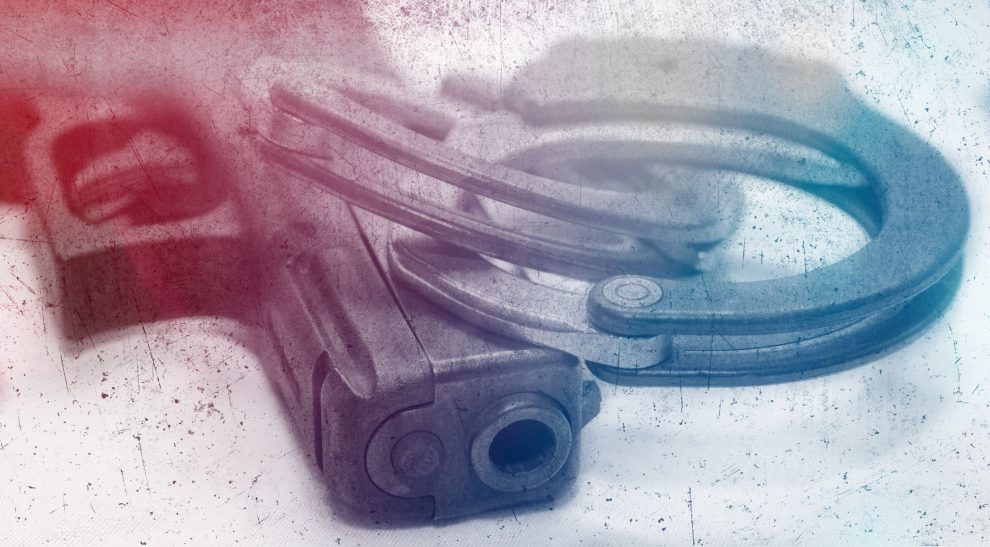At least 85,000 law enforcement officers across the USA have been investigated or disciplined for misconduct over the past decade, an investigation by USA TODAY Network found.
Officers have beaten members of the public, planted evidence and used their badges to harass women. They have lied, stolen, dealt drugs, driven drunk and abused their spouses.
Despite their role as public servants, the men and women who swear an oath to keep communities safe can generally avoid public scrutiny for their misdeeds.
The records of their misconduct are filed away, rarely seen by anyone outside their departments. Police unions and their political allies have worked to put special protections in place ensuring some records are shielded from public view, or even destroyed.
Reporters from USA TODAY, its 100-plus affiliated newsrooms and the nonprofit Invisible Institute in Chicago have spent more than a year creating the biggest collection of police misconduct records.
Obtained from thousands of state agencies, prosecutors, police departments and sheriffs, the records detail at least 200,000 incidents of alleged misconduct, much of it previously unreported. The records obtained include more than 110,000 internal affairs investigations by hundreds of individual departments and more than 30,000 officers who were decertified by 44 state oversight agencies.
Among the findings:
- Most misconduct involves routine infractions, but the records reveal tens of thousands of cases of serious misconduct and abuse. They include 22,924 investigations of officers using excessive force, 3,145 allegations of rape, child molestation and other sexual misconduct and 2,307 cases of domestic violence by officers.
- Dishonesty is a frequent problem. The records document at least 2,227 instances of perjury, tampering with evidence or witnesses or falsifying reports. There were 418 reports of officers obstructing investigations, most often when they or someone they knew were targets.
- Less than 10% of officers in most police forces get investigated for misconduct. Yet some officers are consistently under investigation. Nearly 2,500 have been investigated on 10 or more charges. Twenty faced 100 or more allegations yet kept their badge for years.
The level of oversight varies widely from state to state. Georgia and Florida decertified thousands of police officers for everything from crimes to questions about their fitness to serve; other states banned almost none.
Tarnished Brass: Fired for a felony, again for perjury. Meet the new police chief.
That includes Maryland, home to the Baltimore Police Department, which regularly has been in the news for criminal behavior by police. Over nearly a decade, Maryland revoked the certifications of just four officers.
We’re making those records public
The records USA TODAY and its partners gathered include tens of thousands of internal investigations, lawsuit settlements and secret separation deals.
They include names of at least 5,000 police officers whose credibility as witnesses has been called into question. These officers have been placed on Brady lists, created to track officers whose actions must be disclosed to defendants if their testimony is relied upon to prosecute someone.
USA TODAY plans to publish many of those records to give the public an opportunity to examine their police department and the broader issue of police misconduct, as well as to help identify decertified officers who continue to work in law enforcement.
Seth Stoughton, who worked as a police officer for 14 years and teaches law at the University of South Carolina, said expanding public access to those kinds of records is critical to keep good cops employed and bad cops unemployed.
“No one is in a position to assess whether an officer candidate can do the job well and the way that we expect the job to be done better than the officer’s former employer,” Stoughton said.
“Officers are public servants. They police in our name,” he said. There is a “strong public interest in identifying how officers are using their public authority.”
Dan Hils, president of the Cincinnati Police Department’s branch of the Fraternal Order of Policemen union, said people should consider there are more than 750,000 law enforcement officers in the country when looking at individual misconduct data.
“The scrutiny is way tighter on police officers than most folks, and that’s why sometimes you see high numbers of misconduct cases,” Hils said. “But I believe that policemen tend to be more honest and more trustworthy than the average citizen.”
Hils said he has no issue with USA TODAY publishing public records of conduct, saying it is the news media’s “right and responsibility to investigate police and the authority of government. You’re supposed to be a watchdog.”
The first set of records USA TODAY is releasing is an exclusive nationwide database of about 30,000 people whom state governments banned from the profession by revoking their certification to be law enforcement officers.
For years, a private police organization has assembled such a list from more than 40 states and encourages police agencies to screen new hires. The list is kept secret from anyone outside law enforcement.
USA TODAY obtained the names of banned officers from 44 states by filing requests under state sunshine laws.
The information includes the officers’ names, the department they worked for when the state revoked their certification and – in most cases – the reasons why.
The list is incomplete because of the absence of records from states such as California, which has the largest number of law enforcement officers in the USA.

























